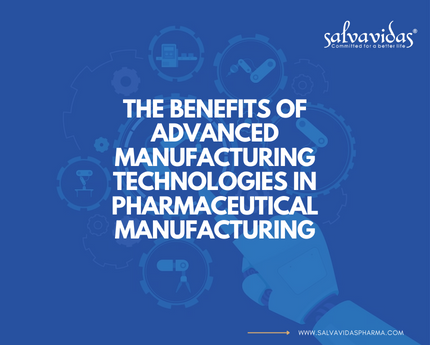
The Benefits of Advanced Manufacturing Technologies in Pharmaceutical Manufacturing
The pharmaceutical industry is constantly evolving, with new technologies and advancements being made every day. One of the most significant improvements in recent years has been the introduction of advanced manufacturing technologies. In this article, we’ll explore the benefits of these technologies and how they are revolutionizing the way pharmaceuticals are produced.
Introduction
The production of pharmaceuticals is a complex and highly regulated process. It requires precision, accuracy, and efficiency in every stage, from the development of new drugs to the packaging and distribution of finished products. With the introduction of advanced manufacturing technologies, the pharmaceutical industry has been able to significantly improve its processes, resulting in benefits for both manufacturers and patients.
Improved Efficiency
One of the primary benefits of advanced manufacturing technologies is increased efficiency. The use of automation and robotics has allowed pharmaceutical manufacturers to streamline their processes, reducing the time and manpower required to produce drugs. This has resulted in significant cost savings, as well as a reduction in the risk of human error, which can be costly in terms of both time and money.
Enhanced Accuracy
Another major benefit of advanced manufacturing technologies is enhanced accuracy. The use of advanced sensors and monitoring systems allows manufacturers to monitor the production process in real time, ensuring that all steps are completed accurately and consistently. This helps to ensure that each batch of drugs is produced to the same high standard, reducing the risk of defects and increasing the reliability of the final product.
Cost-Effectiveness
Advanced manufacturing technologies have also made the production of pharmaceuticals more cost-effective. By reducing the time and manpower required to produce drugs, manufacturers are able to save money on labor and overhead costs. Additionally, the use of automation and robotics has allowed manufacturers to reduce the risk of human error, which can be costly in terms of both time and money.
Improved Quality Control
Quality control is of paramount importance in the pharmaceutical industry, and advanced manufacturing technologies have made it easier to ensure that each batch of drugs meets the necessary standards. With real-time monitoring systems, manufacturers are able to quickly detect and address any issues that may arise during the production process, reducing the risk of defects and improving the quality of the final product.
Increased Flexibility
Another benefit of advanced manufacturing technologies is increased flexibility. By automating certain processes, manufacturers are able to quickly and easily adjust production lines to meet changing demand, reducing the risk of stock shortages and ensuring that patients have access to the drugs they need.
FAQs
Q: How have advanced manufacturing technologies impacted the efficiency of pharmaceutical production?
A: The use of automation and robotics has allowed pharmaceutical manufacturers to streamline their processes, reducing the time and manpower required to produce drugs and resulting in significant cost savings.
Q: How have advanced manufacturing technologies impacted the accuracy of pharmaceutical production?
A: The use of advanced sensors and monitoring systems has allowed manufacturers to monitor the production process in real time, ensuring that all steps are completed accurately and consistently. This has helped to improve the reliability of the final product.
Q: How have advanced manufacturing technologies impacted the cost-effectiveness of pharmaceutical production?
A: By reducing the time and manpower required to produce drugs, as well as reducing the risk of human error, advanced manufacturing technologies have made the production of pharmaceuticals more cost-effective.
Conclusion
In conclusion, The Benefits of Advanced Manufacturing Technologies in Pharmaceutical Manufacturing are clear. From improved efficiency and accuracy to increased flexibility and cost-effectiveness, the use of advanced technologies has revolutionized the way pharmaceuticals are produced. By ensuring that each batch of drugs meets the necessary standards, these technologies have helped to improve the quality and reliability of the final product, benefiting both manufacturers and patients alike. As the pharmaceutical industry continues to evolve, we can expect to see further advancements in the use of advanced manufacturing technologies, further improving the production of life-saving drugs.

0